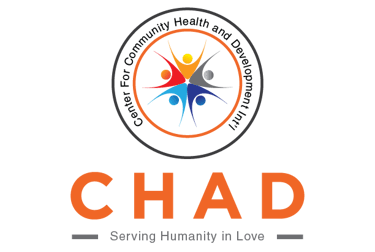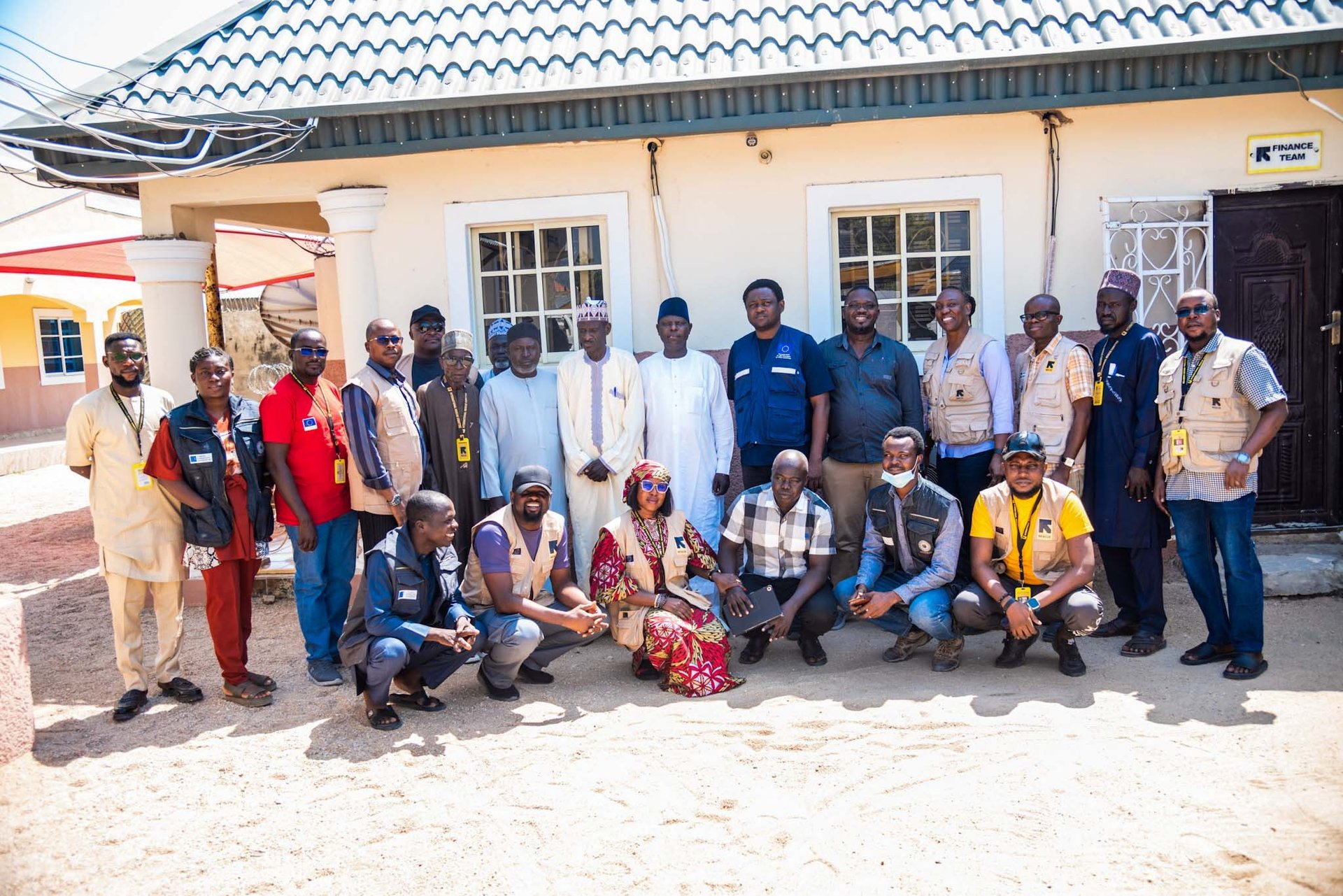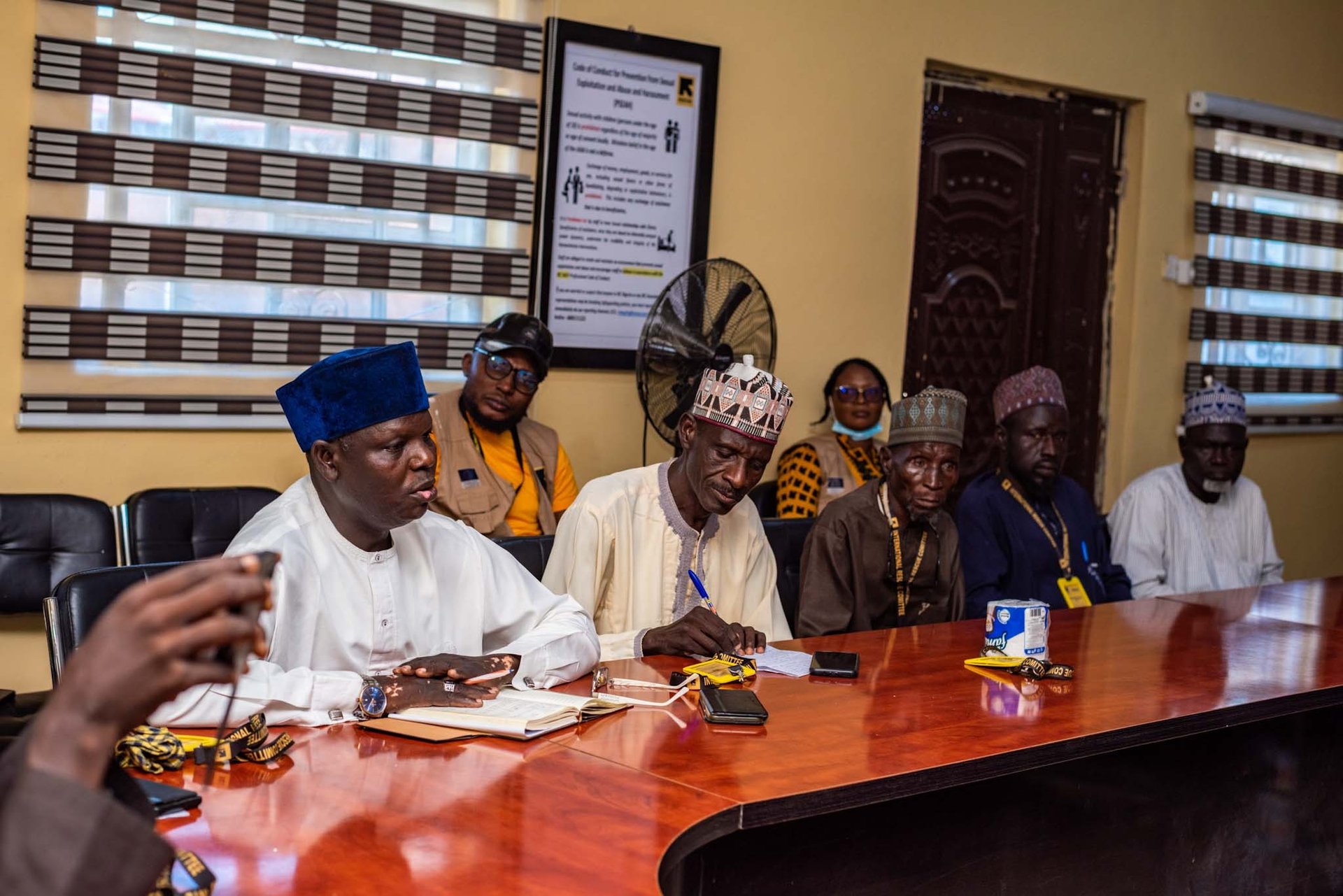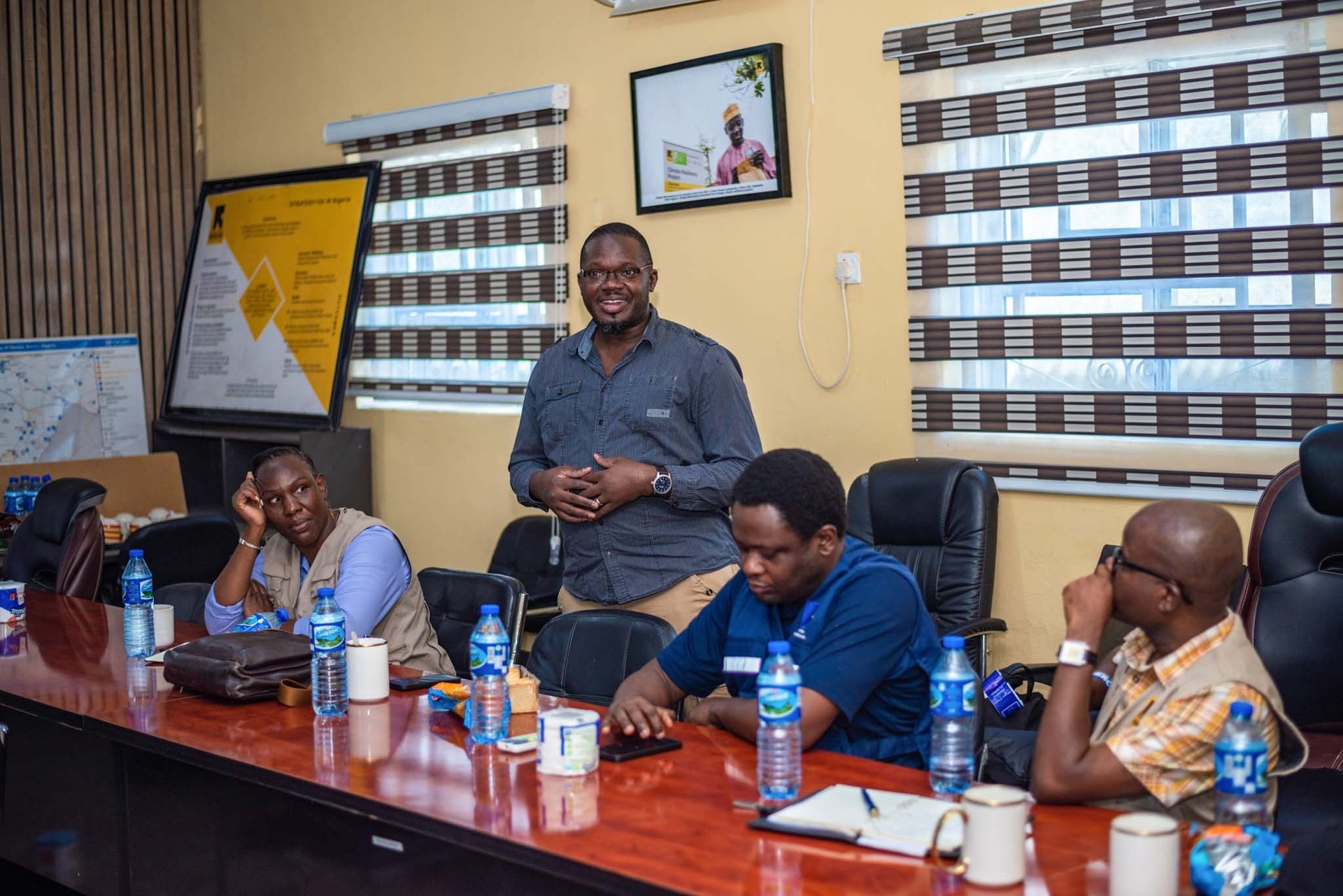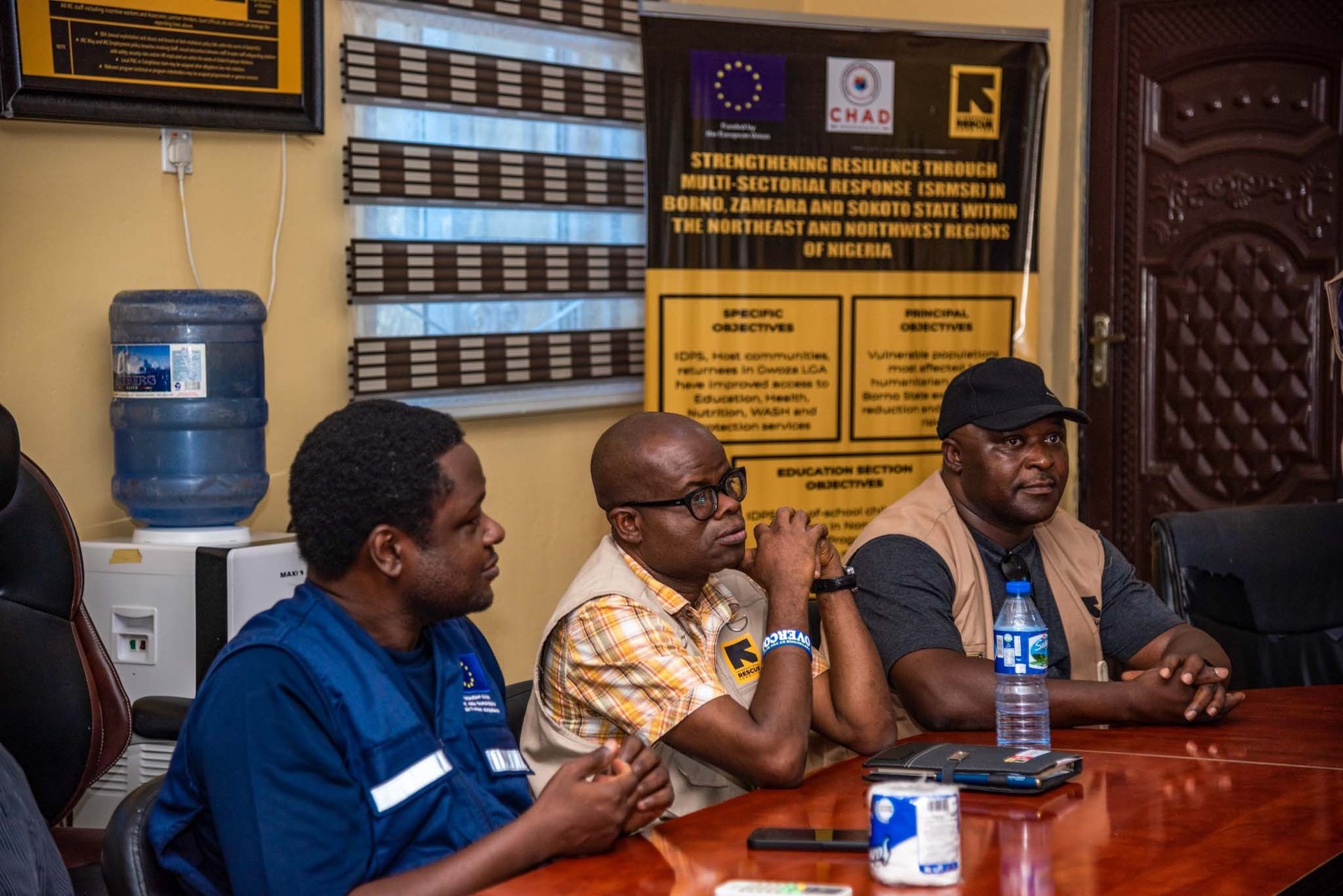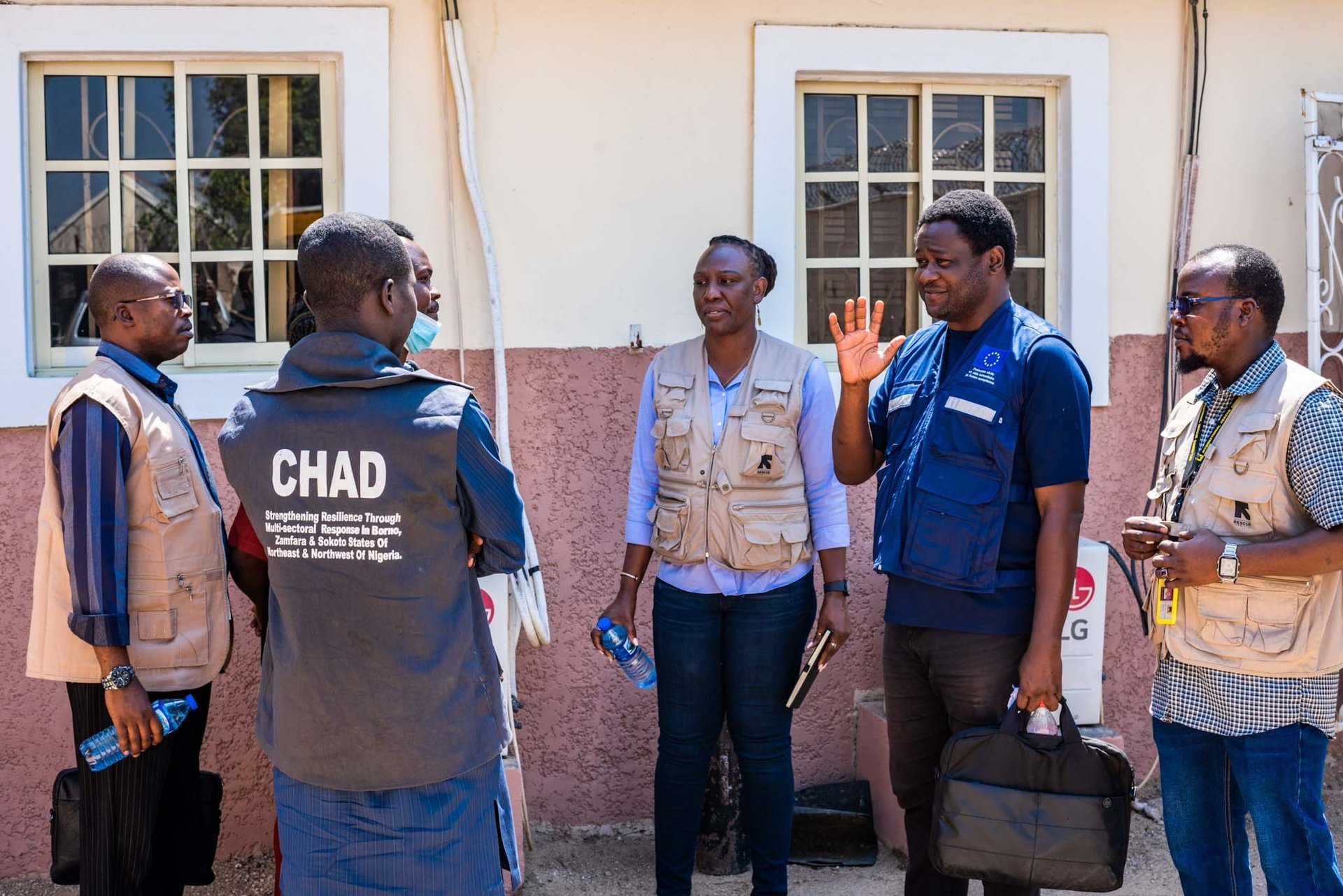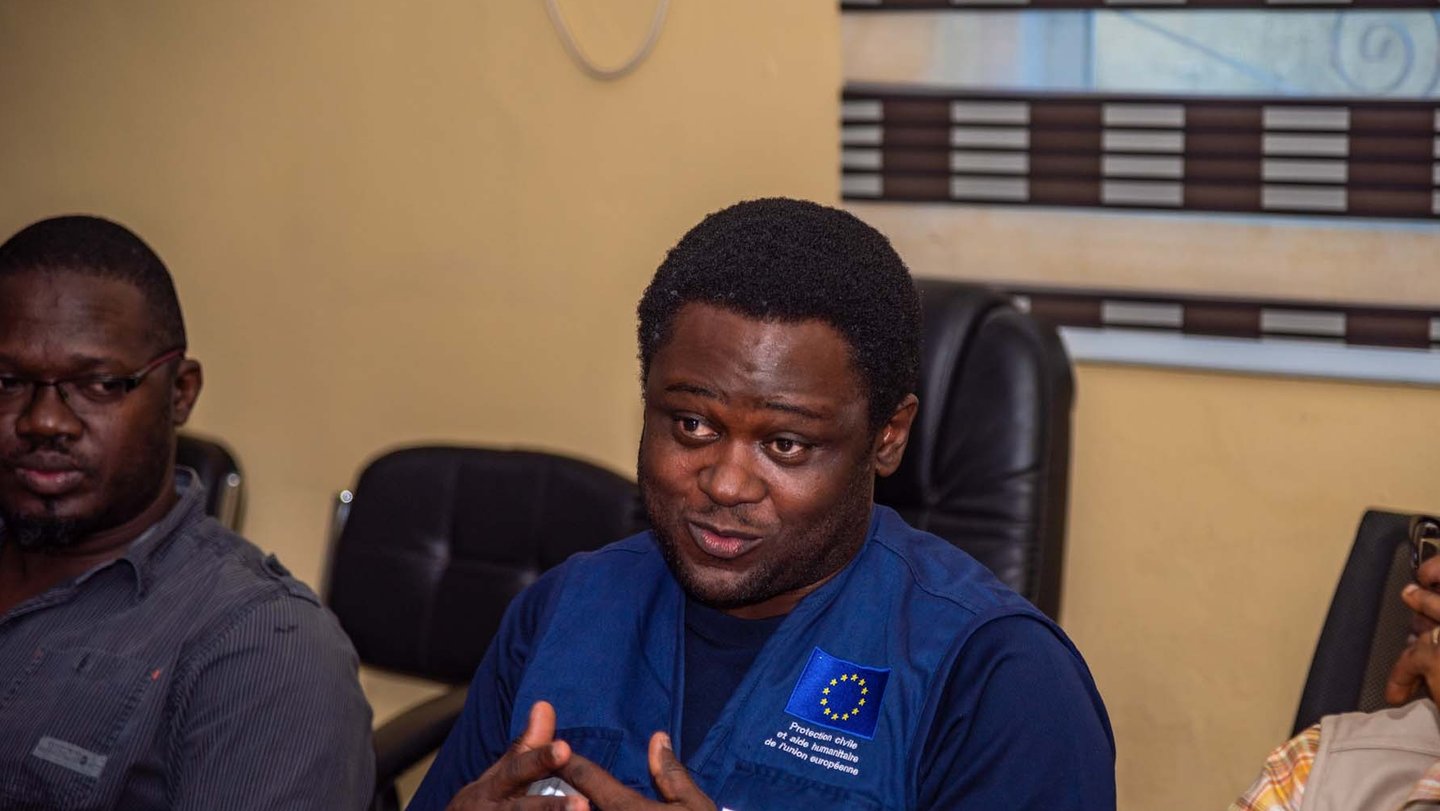

EU team conducts monitoring site visits for the Education in Emergencies project in Gwoza
Education in Emergencies
last Updated: November 3, 2025
We, alongside our lead partner the International Rescue Committee (IRC), recently hosted the European Union Humanitarian Aid (ECHO) monitoring team. The purpose of the visit was to review the progress and impact of our joint Education in Emergencies (EiE) project in Gwoza Local Government Area (LGA), Borno State.
The project, which runs from June 11, 2024, to May 31, 2026, aims to provide protective and quality learning opportunities for children affected by the emergency context in the Hausari, Gadamayo, and REB Communities.
Key Achievements and Impact to Date
Our collaborative efforts, supported by ECHO funding, have resulted in significant milestones focused on transitioning Out-of-School Children (OOSC) back into formal education and strengthening existing school structures:
Non-Formal Education (NFE) Success: Completed the 1st cohort of the Accelerated Basic Education Program (ABEP) for 1,560 OOSC (810 Girls, 750 Boys). These children were provided with adequate scholastic materials.
Formal Mainstreaming: All 1,560 OOSC from Cohort 1 were successfully mainstreamed into formal school settings with necessary bursary support to ensure sustained attendance.
Remedial Education: Completed Cohorts 1 and 2 of the formal education program, reaching 900 low-performing in-school children (485 Girls, 415 Boys) through vital remedial support.
Capacity Building: Recruited and trained a dedicated team of 54 Learning Facilitators (26 M, 28 F) and 15 Teachers (7 M, 8 F) to deliver quality, protective education.
Resource Provision: Ensured the provision of adequate teaching materials across all 54 learning centers, creating conducive learning environments.
Protection and Support: Facilitated the referral of 29 learners (13 Girls, 16 Boys) who required access to essential medical and psychosocial support services.
Stakeholder Collaboration
The ECHO monitoring visit facilitated crucial dialogue and engagement with key local partners, including the Local Education Authority (LEA), Community Leaders, the School Based Management Committee (SBMC), community coalitions, and other education actors. This engagement underscores the community-driven and collaborative approach essential for the project's success and sustainability.
We remain committed to delivering protective and quality education, ensuring every child in Gwoza has a safe path back to learning.
